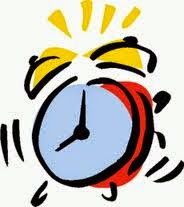We humans seem to take a perverse delight in pondering questions for which there are and can be no definitive answers. It's one of the many wonders—and frustrations—of life that we spend so much time and energy on them as we do. Perhaps it is partly because while these questions seem profound in their inability to be answered, anyone can step in with an opinion. And thinking about them can and does serve as a form of old-fashioned razor strop for sharpening the mind.
Being neither a philosopher nor a scholar, or even particularly bright, doesn't prevent us from thinking about questions which have intrigued our race since we stopped dragging our knuckles on the ground. And an interesting side-effect is that thinking of things beyond our ken can give us insights into just who we are and what makes us tick.
Yesterday, for absolutely no reason I am able to determine, I was thinking of the classic philosophical battle between predestination and free will. I had always been firmly on the side of free will. Predestination—the thought that the outcome of every single choice we make in our lives is predetermined and that we in effect have no control over our destiny—was (and is) both pointless and anathema to me. Some may well take odd comfort in the idea of predestination. We live in a world, after all, in which it seems increasingly clear that we in fact have no control over anything. Going with the idea of predestination is a simple "out" which frees us (no pun intended) from having to even try to change things.
Predestination is a popular biblical theme designed to forestall any blame aimed at organized religion when anything goes wrong. It says, in effect, that we mere mortals needn't worry our pretty little heads about anything: whatever happens was bound to happen no matter what, and since there's not a thing we can do to change it, we have to accept it as part of "God's plan." In other words, God: 1, Humans: 0.
Life is an endless string of choices. Free will says, "Okay, I choose this over that." Predestination says, "Ah, but it was predestined that you'd make the choice you did." This is the equivalent of responding to any statement with, "I knew that!" and challenging whoever made the statement to prove you wrong.
Granted, given that every choice an individual makes is influenced in part by predispositions, past experiences, and the emotional state at the time the decision is made, and that we might have made a different choice under slightly different circumstances, the fact is that we are stuck with whatever decision we did make. Sometimes we could just as easily said "no" instead of "yes." If predestination is removed from the cosmic level...the implication that some unknown forces rule our every action...and simplified to the mere fact that our past predispositions do in fact subtly influence us, I don't think there would be much disagreement; but the choice was still ours and we based it on the circumstances which existed at that moment.
I look on predestination the way I view the predictions of Nostradamus...which are in fact "predictions in retrospect." ("Oh, yeah, that's what he meant!") Predestination also relieves a lot of personal responsibility and serves as a convenient excuse for anything that doesn't work out the way one wanted/expected them to. ("Oh, it wasn't my fault...it was predestined." Uh-huh.)
And yet, having said all that, I realized that another of my basic philosophies—that time is an endless Mobius strip on which every nanosecond of time is repeated endlessly—renders the subject of predestination vs free will moot. Everything is, was, and will be without change and without end. We have free will to make whatever decision we choose, but it is the same freely-made choice we have and will freely make throughout eternity.
Debates which are rooted in questions which are humanly impossible to answer are, ultimately, merely interesting exercises in futility. But then it was predestined that I'd say that, wasn't it?
Dorien's blogs are posted by 10 a.m. Central time every Monday and Thursday. Please take a moment to visit his website (http://www.doriengrey.com) and, if you enjoy these blogs, you might want to check out Short Circuits: a Life in Blogs (http://bit.ly/m8CSO1), which is also available as an audiobook (http://www.audible.com/pd/ref=sr_1_1?asin=B00DJAJYCS&qid=1372629062&sr=1-1).












